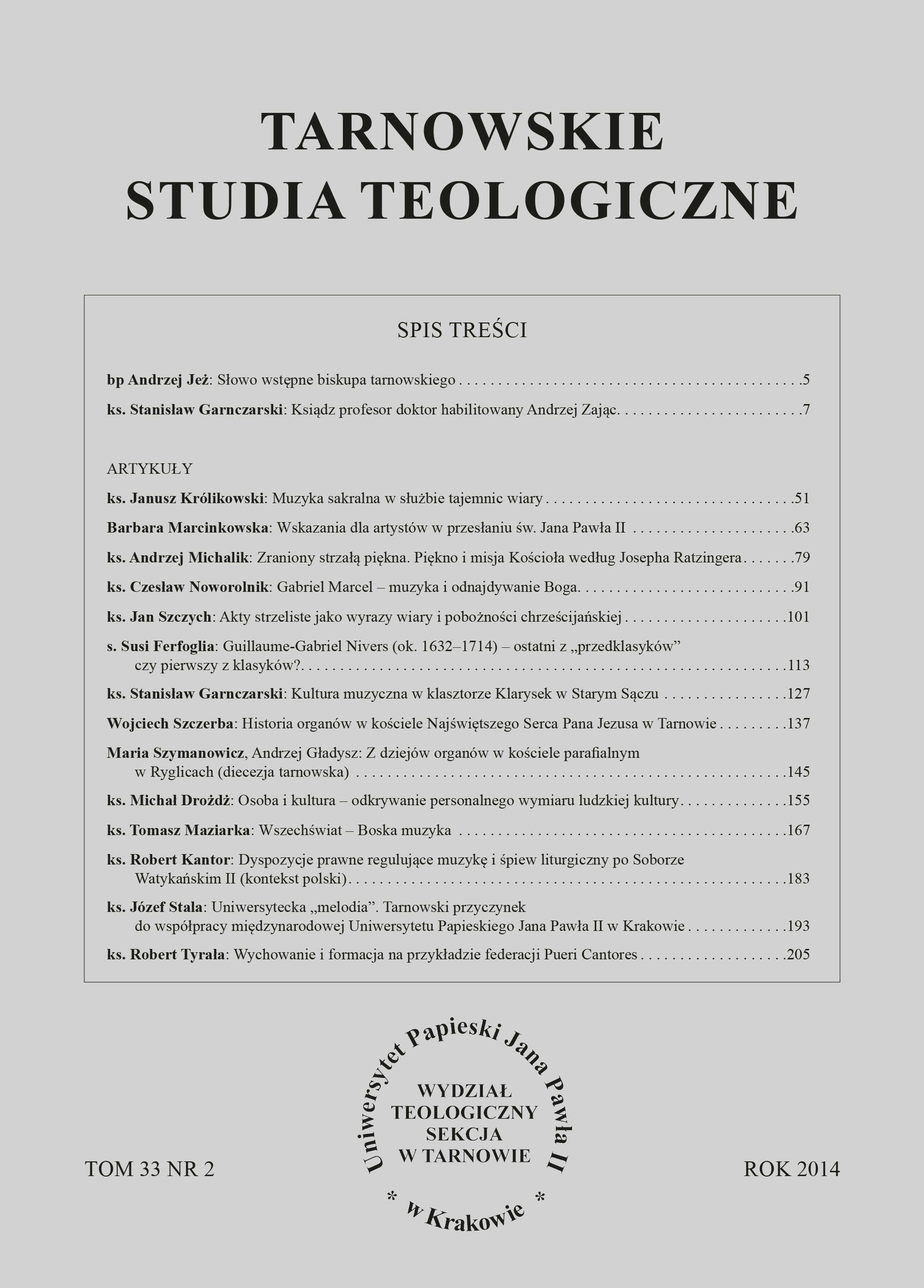Musical culture in Monastery of the Poor Clares in Stary Sącz
DOI:
https://doi.org/10.15633/tst.690Keywords:
Poor Clares Monastery, life music, music collection, band, organistAbstract
Big impact on the life of Church and on the public and cultural sphere has the formation of the new forms of religious life in Europe of the twelfth and thirteenth-century. So it was in Poland in the case of the monasteries of Poor Clares, especially Poor Clares in Stary Sacz which developed the rich musical life. Helpful in this regard were the structure of monastic life with various functions and ministries. Among them we find many serving liturgical music and not only and assigned to sisters of a special musical abilities. Moreover, sisters have led regular singing practice; learned new songs and even composed themselves. Inside the monastery acted religious band, for which the instruments were purchased; in a different period the monastic band functioned, employing also secular musicians, in addition to constantly employed organists. Sisters maintained also close contacts with the clergy who visiting the monastery brought ordered by Sisters liturgical books, among them a musical. In this way library of the monastery enriched by the book, which today are relics of the highest quality and sources of the specialized research on the culture of the monastery of Stary Sacz.
Downloads
Published
Issue
Section
License
Authors who publish with this journal agree to the following terms:
- Authors retain the copyright and full publishing rights without restrictions, and grant the journal right of first publication with the work simultaneously licensed under a Creative Commons Attribution 4.0 International License that allows others to share the work with an acknowledgement of the work's authorship and initial publication in this journal.
- Authors are able to enter into separate, additional contractual arrangements for the non-exclusive distribution of the journal's published version of the work (e.g., post it to an institutional repository or publish it in a book), with an acknowledgement of its initial publication in this journal.
- Authors are permitted and encouraged to post their work online (e.g., in institutional repositories or on their website) prior to and during the submission process, as it can lead to productive exchanges, as well as earlier and greater citation of published work (See The Effect of Open Access).

